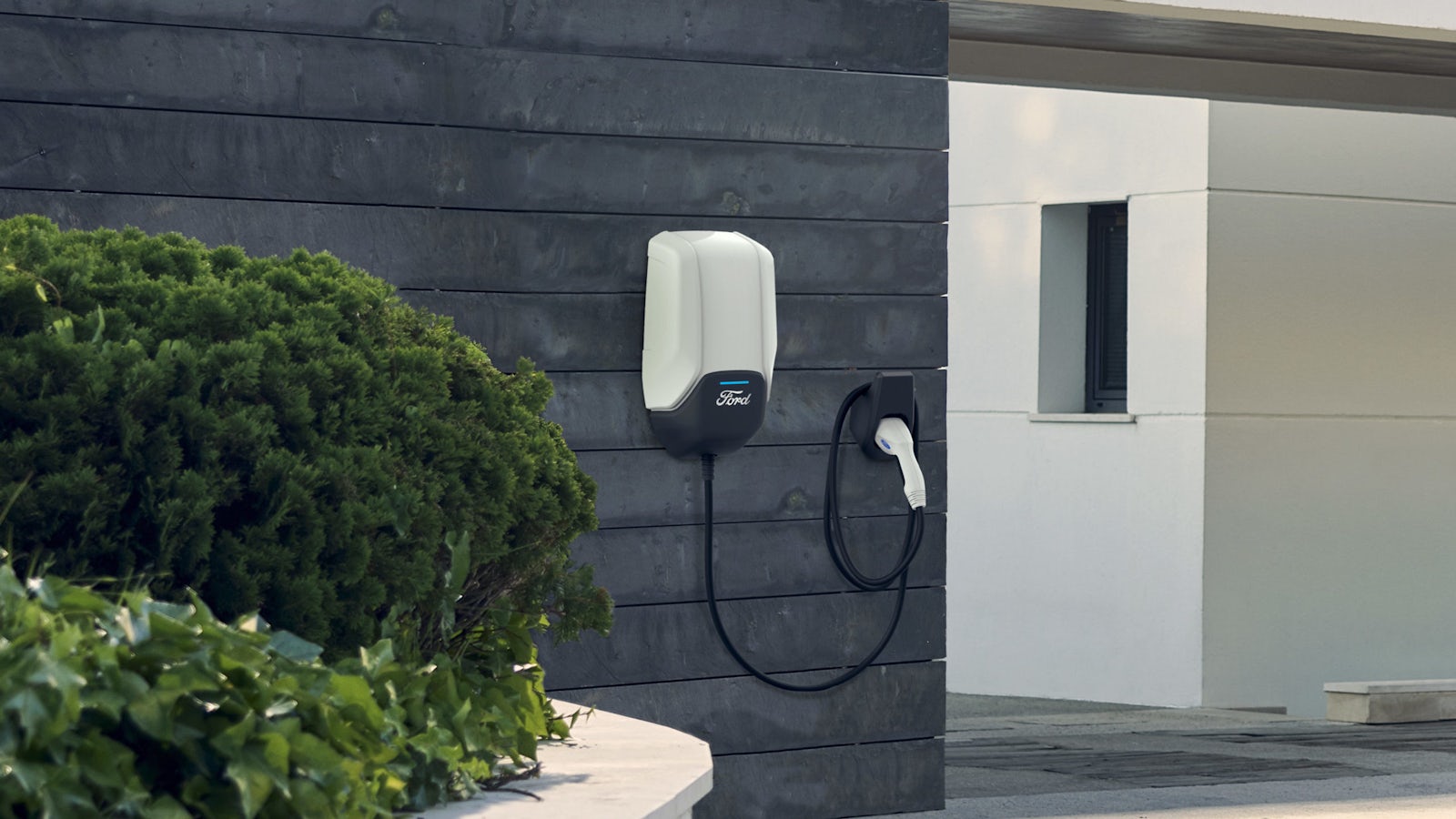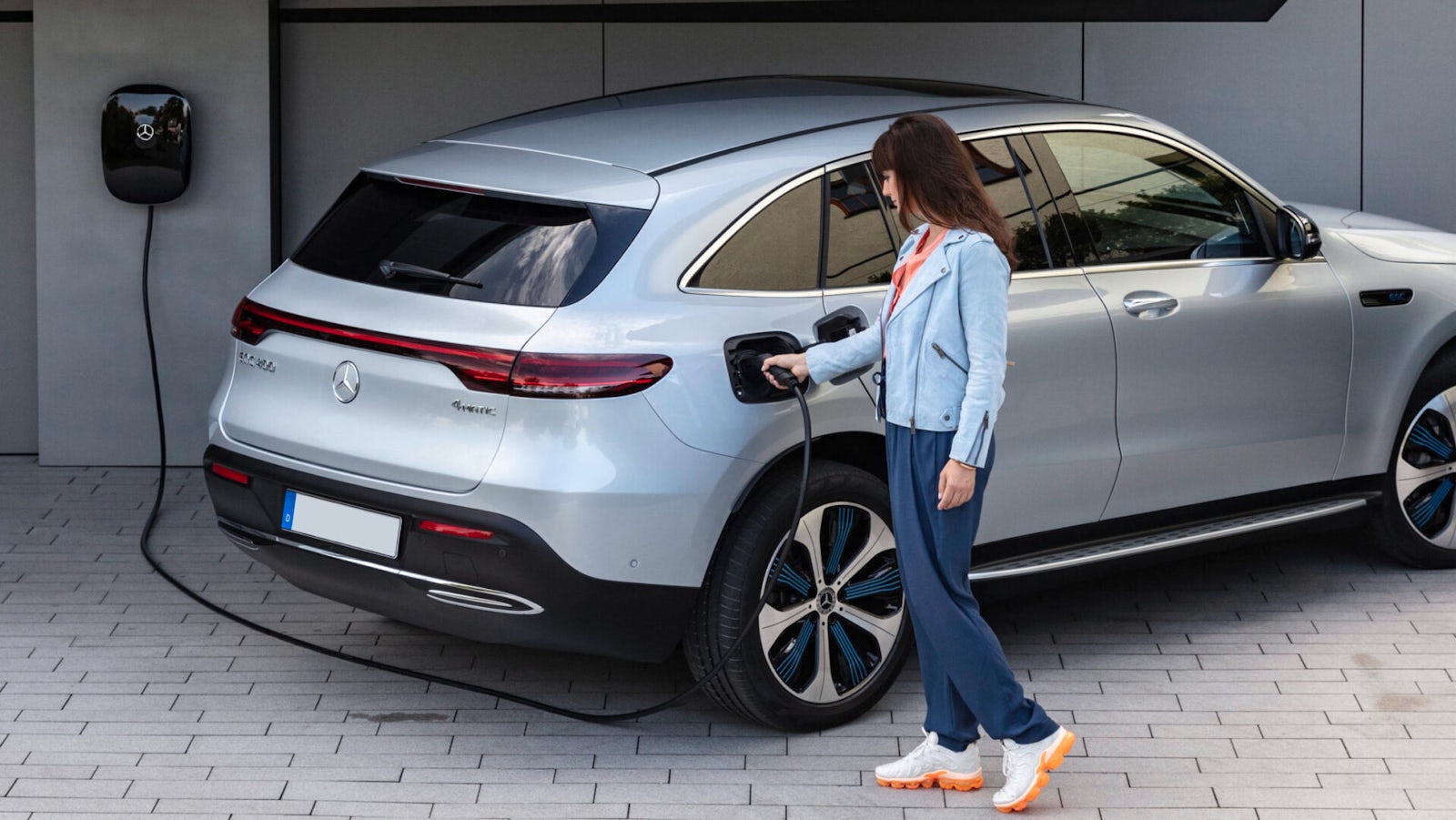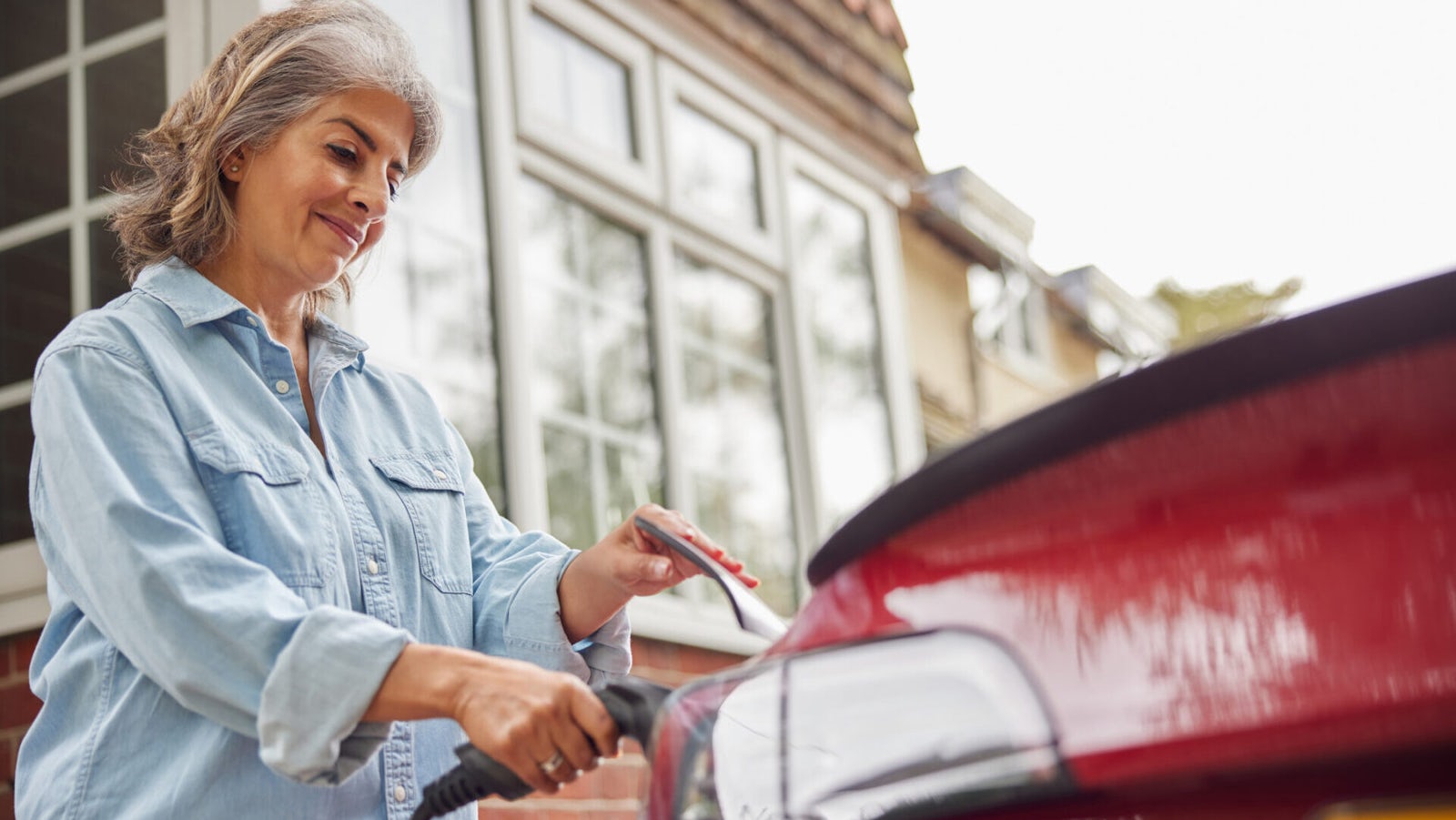How much does it cost to charge an electric car?
October 01, 2024 by David Motton

An electric car is more expensive to buy but cheaper to run than a regular car, right?
Well, if you are looking for a one-word answer, ‘yes’. The reality is a bit more complicated, but it should cost less to charge an electric car than the price of fuelling a petrol or diesel.
A more complicated but honest answer would be ‘it depends’. High energy costs mean home charging is more expensive than it used to be, but it’s still far cheaper than using the public charging network. If you must charge when you are out and about then an EV won’t necessarily save much over fuelling a car with a petrol or diesel engine. Depending on how you crunch the numbers, it may not save you anything at all.
We’ve been busy with our calculators to help you work out how much it costs to charge an electric car, both at home and when you’re on the road and reliant on public chargers.
In the interests of simplicity, our calculations are based on charging sessions taking the car’s batteries from 0-100%. This tends not to be the reality, as letting a battery drop to 0% is the equivalent to running out of petrol, while charging to 80 or 90% helps preserve battery health.
How much does it cost to charge an electric car at home?
This will depend on two things. The first is your energy tariff at home – some are specifically for EV owners. The second is the size of your car’s high-voltage battery. The larger it is, the more electricity will be needed to fill it up, and the more it will cost.
Before you buy your first EV, it makes sense to install a wallbox home charger.
Home wallbox costs
At a pinch you can charge an EV from a regular socket, but it’s not the best way to do it. Domestic three-pin plugs are not recommended for charging EVs, partly because they charge the car very slowly, and partly because the draw an electric car will put on the socket will be high, so it’s not a smart move from a safety perspective.

Three-pin plugs typically charge at around 2.3 kiloWatts (kW), so if your EV has a 100 kiloWatt hour (kWh) battery, it will take 43.5 hours to charge from full to empty. Plug in on Saturday morning, and you’ll only just be charged up for the start of the week on Monday.
Fortunately, several companies make and install home wallbox chargers, so there is plenty of choice. They cost from around £800 or so. Importantly, they’re also specifically designed to charge EVs safely, and can generally deliver electricity at up to 7kW, more than halving the time it will take to charge the car.

If your house has a three-phase electricity supply you can fit a more powerful 11kW charger, but most homes in the UK have a single-phase supply.
Either way, you’ll need off-street parking or a garage to have a wallbox installed.
Energy tariff prices
Buying a wallbox is a one-off cost, whereas your domestic energy prices will have a far greater bearing on how much it costs you to charge an EV at home.
EV battery sizes are measured in kiloWatt hours, or kWh, as is the electricity that is delivered to your home. No prizes for guessing that a 100kWh battery will take 100kWh of electricity to fill from 0-100%, and you can calculate how much this will cost by looking up how much you pay your electricity supplier for each kWh.
The energy price cap for households on a standard variable tariff from 1 October to 31 December 2024 is £0.245 per kWh; at this price, a 100kWh EV would cost £24.50 to charge from 0-100%.
If your EV has a 50kWh battery you could halve these costs, whereas an 80kWh EV would be 80% of those prices (ie: £19.60 at £0.245 per kWh).
Cost per mile is a more important metric
While the amount your energy provider charges per unit is a big factor in how much your electric car will cost to run, the efficiency of an electric car is also important.
That 100kWh EV we modelled above will be able to store twice as much electricity as a car with a 50kWh capacity. All other things being equal that would give it twice the range, but the reality is that most EVs with high-capacity batteries tend to weigh more than electric cars with smaller ones.
This leads to smaller EVs being able to travel further on a single kWh unit of electricity. As an example, a super-efficient EV might cover five miles for every kWh of electricity its battery holds, whereas a less efficient one might only be able to go 2.5 miles per kWh.
The more efficient EV will therefore cost you half as much per mile compared to the less efficient one. So, while the amount it will cost you to fill each car will differ, the amount each car will cost you to cover a mile is far more relevant.

The size of the battery also contributes to how much the car costs. Versions of the same EV with a bigger battery are more expensive as well as less efficient. That’s worth remembering if you are tempted to pay more for an EV with a larger battery and a longer range.
An EV that does 2.5 miles per kWh charged using electricity priced at £0.245 per kWh will cost just under £0.10 per mile to power.
An EV that manages 5 miles per kWh charged using electricity priced at £0.245 per kWh will cost just below £0.05 per mile.
Let’s compare this to a petrol car, which might do 40 miles per gallon. With the average cost of a litre of unleaded petrol (as of September 2024) being £1.3615 (equivalent to £6.19 per gallon), each mile in that 40mpg car will cost £0.155. That’s three times the cost-per-mile of a very efficient EV, and half as much again as a less efficient one.
Specialist home EV tariffs
Electricity providers don’t always charge the maximum under the price gap, especially for customers who switch to a tariff that’s designed for EV drivers.
These tend to bring significantly lower prices at night, and with most EVs (and many home wallboxes) being able to schedule charging sessions based on owner preferences, it is easy to take advantage of these off-peak prices.

As an example, Octopus Energy’s Flexible Octopus tariff currently charges £0.2313 per kWh (so just over 23p). That’s already beneath the price cap.
Change to the Intelligent Octopus Go tariff, and for six hours each night the price drops to just £0.07. On that tariff, a full recharge for a 100kWh EV battery would cost just £7. That’s a saving of £16.13 compared with charging up using the regular Flexible Octopus tariff.
Incidentally, the same lower energy cost applies throughout your home for those six hours, handy for night owls who want to binge watch the latest series or catch up on washing while everyone else is asleep.
How much does it cost to charge an electric car at a public charging point?
If you’ve made it through so far, the good news is things get a lot simpler from this point. There are no wallboxes or variable tariffs to think about when it comes to public charging, while we’ve already covered most of the principles about EV charging and costs.
In short, the amount it costs to charge an electric car publicly depends on how large its battery is, and the price of electricity.

The bad news is public chargers are much more expensive than home charging. Each network charges a different amount for their electricity, just as petrol stations set their own prices.
The Ionity network charges £0.74 per kWh, so a 100kWh EV would cost £74 to charge from full to empty, and a 50kWh EV would cost £37.00. A car that will cover five miles per kWh will cost 14.8 pence per mile if using Ionity, whereas an EV that does 2.5 miles per kWh will cost 29.6 pence.

Instavolt chargers all cost £0.85 per kWh, so a full recharge will cost you more – £85 if you charge a 100kWh EV from empty.
As of September 2024, Osprey is charging £0.79 per kWh for its rapid chargers, so a 100kWh EV would cost £79 to charge from empty to full.

BP Pulse charges between £0.44 and £0.85 depending both on the speed of the charger being used, and whether you are a subscriber or a guest user.
You could get lucky – some public EV chargepoints are free to use. These tend to be located at places such as supermarkets, gyms, hotels and the like. Usually, free chargers are of the slower 7kW type rather than the rapid 50-150kW units you’ll find at most public points you pay to use.
You can find your nearest charging point using this handy electric car charging point map. If you have a Tesla, we also have a dedicated Tesla charging stations map.
How much does it cost to charge an electric car on the motorway?
In the same way as filling up a petrol or diesel car will cost you more at a motorway service station, you may pay more to charge an EV there than you would at public points around town – though some chargepoint firms offer flat rates, no matter the location.

Motorway service stations tend to have a greater number of rapid chargers than other locations, so you’ll be able to add plenty of range for your money while you tuck into a croissant and a coffee. Be mindful that some chargers and motorway-service car parks have time limits for use, with fines for those who outstay their welcome.
Tesla Superchargers
If you’ve got a Tesla, you’ll be able to use the company’s Supercharger network. This is gradually (and on a trial basis) being opened up to owners of other EVs, but in the main remains the preserve of Tesla drivers.

Tesla Supercharges can be found at various locations including many motorway services. They tend to be very fast, often with 150kW points that can take a battery from flat to full in about 40 minutes for the latest models.
Prices for Superchargers vary based on location and are displayed on the car’s touchscreen, so it’s worth checking before plugging in. Older Tesla models came with free Supercharger use, although the manufacturer stopped offering this on cars made after 2016, limiting it instead to a set amount of mileage credits or hours of free charge annually.

It’s important to remember that Tesla charges idle fees if more than half the cabinets are in use and you’ve left a fully charged car plugged in.
Cost of charging FAQs
Is it cheaper to charge at home or using the public network?
Unless you can find a free public charging point it’s much cheaper to recharge at home. Public chargers, especially very powerful ones, are a lot more expensive.
Will I save money if I switch to an EV tariff?
Yes, you should save money on the price of EV charging with a dedicated electricity tariff. These typically encourage off-peak charging with lower prices at night.
Is an electric car cheaper to fuel than a petrol or a diesel?
Yes, so long as most of your charging is done at home. You should only use the public charging network when you really need to, as it’s pricey compared to home charging.
Cars Change? Carwow!
Looking for a new set of wheels? With Carwow you can sell your car quickly and for a fair price – as well as find great offers on your next one. Whether you’re looking to buy a car brand new, are after something used or you want to explore car leasing options, Carwow is your one stop shop for new car deals.















